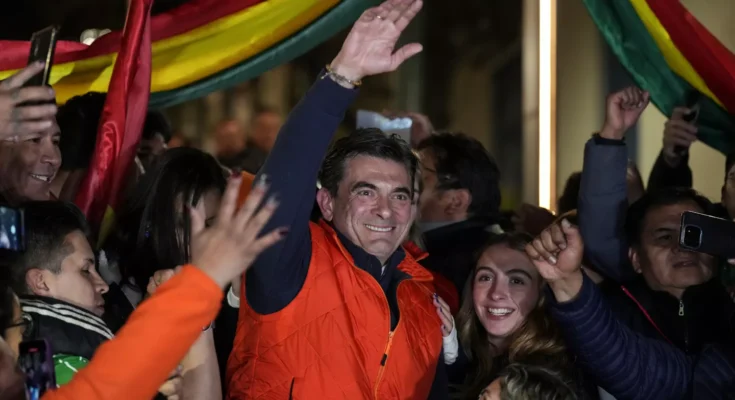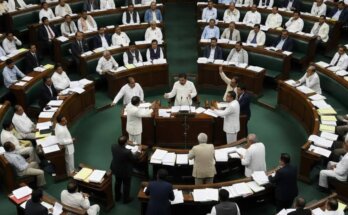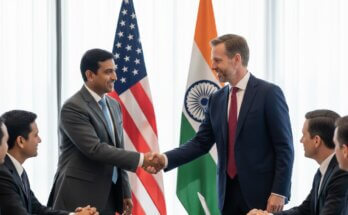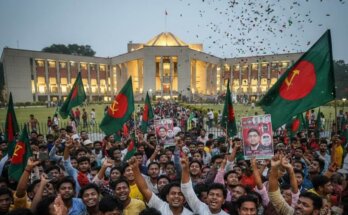Bolivia is heading into a tense runoff presidential election after the first round of voting on August 17, 2025, failed to produce an outright winner. In a surprising shift, the traditionally dominant leftist party suffered major setbacks as voters leaned toward centrist and right-leaning candidates, signaling a significant political realignment in the Andean nation.
The runoff is scheduled for October 19, 2025, and will pit Rodrigo Paz, a centrist reformer, against Jorge “Tuto” Quiroga, a conservative former president.
Background: A Country in Transition
Bolivia has long been seen as a leftist stronghold, with the Movement for Socialism (MAS) dominating politics since Evo Morales first came to power in 2006. However, economic challenges, corruption scandals, and frustrations over governance have weakened public trust in the MAS leadership.
This year’s election comes at a time when:
-
Inflation is rising
-
Public debt has soared
-
Key industries like lithium mining face global scrutiny
-
Calls for transparency and democratic reforms are growing
The First-Round Results
According to the Supreme Electoral Tribunal of Bolivia (TSE):
-
Rodrigo Paz (Civic Community – Centrist) received 34% of the vote
-
Jorge “Tuto” Quiroga (Conservative Alliance) won 31%
-
The ruling MAS candidate, Luis Arce’s successor candidate, secured only 24%
Since no candidate crossed the 50% threshold or secured 40% with a 10-point lead, a runoff election is required under Bolivia’s electoral law.
Who Are the Runoff Contenders?
Rodrigo Paz (Centrist Reformist)
-
Son of former president Jaime Paz Zamora
-
Advocates for economic modernization and anti-corruption reforms
-
Seeks to balance foreign investment in Bolivia’s lithium sector with local benefits
Jorge “Tuto” Quiroga (Conservative Former President)
-
Served as Bolivia’s president from 2001–2002
-
Promises a pro-business agenda and closer ties with the U.S.
-
Strong critic of Venezuela and regional leftist blocs
Why the Left Faltered
The MAS party, once dominant under Evo Morales and later Luis Arce, has lost its grip due to:
-
Allegations of corruption and mismanagement
-
Declining support in urban centers
-
Growing frustration among young voters who want economic diversification beyond gas and mining
Regional & Global Stakes
-
Lithium Politics: Bolivia’s vast lithium reserves are crucial for the global EV (electric vehicle) supply chain. Whoever wins will shape foreign partnerships, especially with China and the U.S.
-
Regional Shifts: A conservative or centrist win could tilt Bolivia away from its historic alignment with leftist governments in Venezuela and Cuba.
-
Foreign Investment Climate: Investors are closely watching the runoff outcome to gauge stability in South America’s resource sector.
What’s Next?
The second round on October 19 is expected to be highly competitive:
-
Paz will need to consolidate centrist and progressive voters who oppose MAS but fear hard conservatism.
-
Quiroga will try to rally business leaders, conservatives, and disenchanted MAS voters seeking change.
Turnout and alliances from smaller parties will be decisive.
Conclusion
Bolivia’s 2025 election marks a turning point in the nation’s political history. With the left weakened and the right resurgent, the October runoff will determine whether Bolivia embraces centrist reform or conservative revival.
Either way, the outcome will have ripple effects across Latin American politics, global energy markets, and democracy in the region.
FAQs
Q1: When is the Bolivia presidential runoff?
October 19, 2025.
Q2: Who are the two candidates in the runoff?
Rodrigo Paz (centrist) and Jorge “Tuto” Quiroga (conservative).
Q3: Why is this election significant globally?
Bolivia holds some of the world’s largest lithium reserves, critical for EV batteries and renewable energy.
Q4: What happened to the ruling leftist party?
The MAS candidate fell short due to corruption scandals, economic struggles, and declining popularity.




